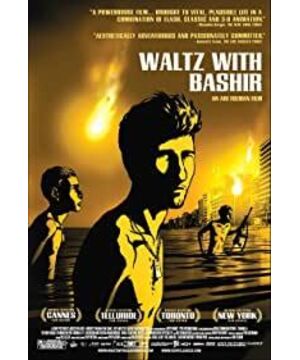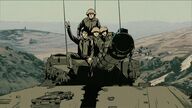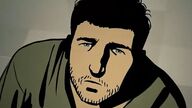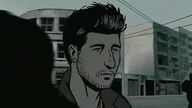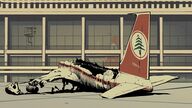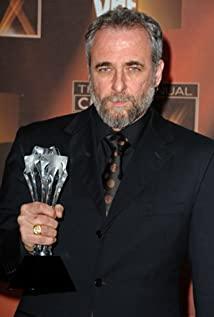Tell Nightmare Battlefields Sad Human
Memory Is A Forgetting That Must Be Remembered
We may forget the past But the past will not forget us
Israel invaded Lebanon in 1982, supported the Christian Phalangist govern. After being elected president, the Christian Falangist militia leader Bashir. After the assassination of Bashir Gemayel, the Falangists angered the Palestinians, and with the support of Israel, the Falangist militias launched an attack on Palestinian refugee camps in Beirut's Sabra and Shatila. Massacre, thousands of people were killed and wounded. And director Ari Folman is one of the Israeli soldiers.
One night, Alifrman's friend stated that he was awakened by the same nightmare repeatedly every night, and he remembered the 26 dogs barking at him in the dream. The pair thought it had something to do with what happened when they were in the military around the age of 20, but Alifrman was startled by how fragmented his memory had become to piece together a complete fragment. He decided to look for his former colleagues, hoping to restore the truth. However, as the facts approached the core of his memory, everything began to emerge quietly like surreal images.
In the poetic waltz, the
film of conflict and harmony, a soldier picks up a submachine gun at the moment when the two armies are fighting, leaves the shelter, and shoots all around. His steps are like dancing a waltz in the hail of bullets. Zi, this absurd and bloody scene is the point of view that the director finally wants to express, and it is also the focus of the film. He wants to describe the perception of the soldiers, and it is also his perception. For this crucial scene, the director chose the form of animation, such as a poetic waltz clip that was quietly presented. The whole process took less than ten seconds, but it made people hold their breath and were overwhelmed by the absurd sense of powerlessness brought by the war. .
special animated documentary
Animated documentaries are a rare type of film. Alifrman, who was a documentary filmmaker, chose to present this film in the form of animation, because freedom and freedom of creation are the characteristics of animation, and such characteristics provide the director with the best space to play. , on the one hand, he can recreate his memories on the battlefield to the fullest without worrying about the transformation of time and space, and on the other hand, he does not have to worry about the inability to capture the real scene or the poor performance of the actors, and the whole film is interpreted in animation, only at the end of the film The way of showing real photos also greatly adds to the atmosphere and the final climax.
Highly saturated colors and changes in light and shadow create an illusory but extremely real scene.
The lines of the film are simple, with only strong contrasting black lines to outline the character scenes, but the director uses highly saturated colors to fully present the human body, using a lot of dark yellow and The black and almost real light and shadow changes create a sense of illusion, which not only allows the audience to experience the alternation of fantasy and reality, but also allows the director to express the complex mood of people on the battlefield. In addition to illusory scenes, the director also uses many special techniques to express the unrealistic feeling and psychological pressure of human beings in war. For example, in the film, there have been many scenes of women hugging men tenderly, which symbolizes the cruel battlefield. , the vulnerable soldiers are like babies, wanting to throw themselves into the arms of their mothers all the time to escape the oppression brought by reality.
Field Notes:
The strongest impact was shown in an extremely peaceful atmosphere.
Interviewing comrades in arms during the war and returning to the memory scene.
After the director Alifrman decided to make a cartoon, the first stage was to do his homework. He spent a year spent time researching the war between Israel and Lebanon, but in the end Allifrman realized that he actually wanted to focus on his own personal experience, so he decided to write his own experience first, filming the interview tape and interviewing as he wrote. The partners who participated in the war with him at that time restored the truth.
View more about Waltz with Bashir reviews


